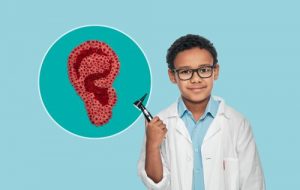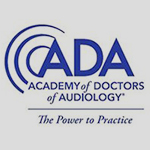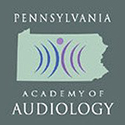What Is an Auditory Processing Disorder?
 An auditory processing disorder, or APD, occurs when the ears and the brain do not work as well together as they should. Although people with an APD may think they have hearing loss, they can usually hear fine; instead, their brain is having difficulty processing the sounds. In other words, even though they may be listening carefully, they are not fully understanding or comprehending the information they hear. The audiologists at Hearing Smile Professionals in Lancaster, Pennsylvania, specialize in evaluating and treating APDs and other complex auditory disorders in both children and adults.
An auditory processing disorder, or APD, occurs when the ears and the brain do not work as well together as they should. Although people with an APD may think they have hearing loss, they can usually hear fine; instead, their brain is having difficulty processing the sounds. In other words, even though they may be listening carefully, they are not fully understanding or comprehending the information they hear. The audiologists at Hearing Smile Professionals in Lancaster, Pennsylvania, specialize in evaluating and treating APDs and other complex auditory disorders in both children and adults.
What Are the Symptoms of an Auditory Processing Disorder?
Some common signs of an APD include:
- Difficulty understanding speech, especially amid background noise
- Difficulty remembering and following verbal instructions
- Frequently asking for spoken words to be repeated
- Misinterpreting sarcasm and jokes
- Being easily distracted, especially by loud and sudden sounds
- Being overly sensitive to noise
- Struggling academically, particularly with reading and spelling
Understanding Auditory Processing Disorders in Children
In school-age children, APD symptoms may be misinterpreted as immaturity, behavioral problems, or adjustment issues. This makes early detection, an accurate diagnosis, and appropriate treatment all the more important. For a child who does not accurately process speech, reading skills can be especially difficult to master. As a result, the child may quickly fall behind in school.
Although APDs are more prevalent among children, they can affect adults, too. If you are a parent or teacher of a child who seems to be having trouble communicating—or if you are experiencing issues yourself—you can turn to Hearing Smile Professionals for expert care. By performing a thorough hearing test, we can confirm that your ears are properly receiving sounds. If so, we can then perform an auditory processing disorder evaluation, which may tell us that your brain is not assigning the correct meanings to the auditory signals sent by your ears.
To learn more or request an auditory processing disorder evaluation in Lancaster, PA, contact Hearing Smile Professionals today.



